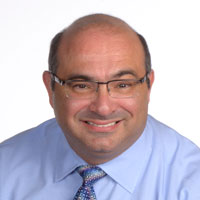It is estimated that in North America, one in twenty adults suffer from a neuropsychiatric disorders. Among these disorders are schizophrenia, depression, epilepsy, Parkinson disease and Huntington disease. An estimated 6.8 million people die every year worldwide as a result of these disorders. Projections suggest that the percentage of persons with these disorders will increase.
Care for patients with neuropsychiatric disorders needs a specific approach. Dental professionals must be aware of the possible consequences of these disorders on oral health. It is necessary for dentists to develop diagnostics skills to treat the patients affected by these neuropsychiatric disorders. In this lecture we will discuss the pathophysiology and pharmacotherapy of these disorders and the implications to dental care.
Also, we will discuss the potential adverse drug reactions (ADRs) and drug interaction (DIs), which may occur in these individuals, particularly due to polypharmacy and behavioural changes inherent to these disorders. Finally, dental management and specific treatment plans will be reviewed.
Learning Objectives:
Recognize the prevalence of neuropsychiatric disorders.
Understand (a) the pathophysiology and (b) pharmacotherapy of these disorders and consequences to oral health.
Introduce the appropriate procedures in dental practice required to optimize dental care in these patients.
Promote the role played by the dentist in the inter-professional care of patients affected by neuropsychiatric disorders.
- The speakers have no financial interests that would create a conflict of interest or restrict their judgement with regard to the content of this presentation.
- Case images are property of the speaker unless otherwise noted.

